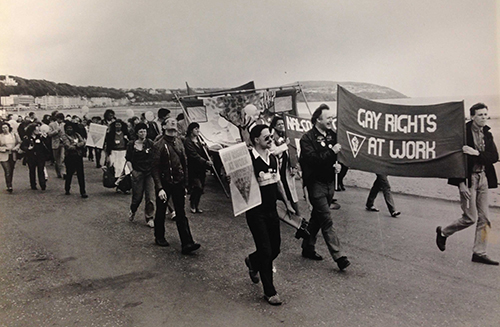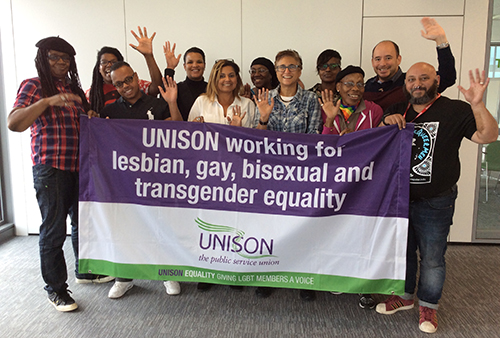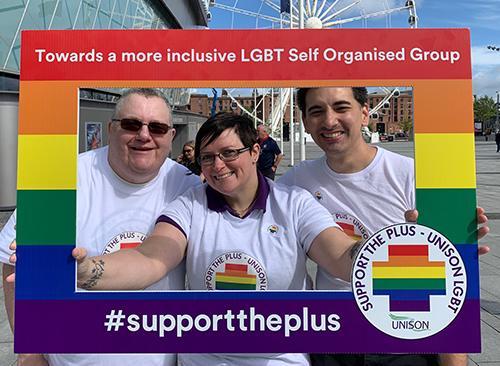Local government delegates in Brighton have been celebrating the successes of the union’s Year of LGBT+ Workers, while accepting that the fight to achieve LGBT+ equality and acceptance is far from over.
A composite motion noted that the year devoted to LGBT+ workers is providing an opportunity to promote UNISON as the union for LGBT+ workers in local government, raise awareness of LGBT+ rights, challenge discrimination, negotiate LGBT+ inclusive policies and recruit and activate LGBT+ members in the service group.
But while LGBT+ people have seen positive change in recent years, prejudice and discrimination continue to impact the lives of many.
Proposing the motion, Penny Smith of the national LGBT+ committee (pictured) told delegates: “The contribution that our LGBT+ members make in local government to improving employment conditions for LGBT+ workers and to campaigning more broadly on equality for LGBT+ people is amazing.
“We have much to celebrate this year. We are continuing the trans ally roll out, we are asking branches to fill in our LGBT+ policy checklist on LGBT+ equality, we are creating new training on plus identities. And many branch members have worked tirelessly to make this year successful and educative.
“This is all so positive. And yet I don’t always feel positive. Prejudice and discrimination continue to impact our lives. Anti-trans rhetoric and anti-LGBT+ sentiment is endemic in all forms of media. Many of us are not safe at work, not many of us can be ‘out’ at work.
“This is due to misconceptions deliberately perpetrated by anti-LGBT+ and anti-trans groups. We also do not receive the support we should get from some employers.”
Ed Whitby of the local government executive told delegates: “The last five years have shown how important this year is to us,” citing a 112 per cent rise in hate crime based on homophobia in that period, and a 186 per cent rise in hate crimes against trans people.
“We celebrate our long history,” he said, “but we double our commitments as activists to make the practical steps for change.”
Liz Wheatley of Camden branch said that “LGBT+ people have been at the sharp end of Tory attacks. Election year has been a race by the Tories to attack the most vulnerable in society, to divide us and make us blame each other and not the Tory criminals who are stealing our pay, our services, our homes, our schools and our hospitals.
“In particular, they want to scapegoat refugees and trans people, so it’s important that we stand and organise against this.”
The motion calls on the service group executive to work with the national LGBT+ members committee and others to:
- Continue to promote the Year of LGBT+ Workers at every level of union activity
- Continue to encourage branches, regions and sectors to negotiate on LGBT+ workers’ rights in collective bargaining
- Promote and encourage participation in equality training, in particular the trans ally training
- Work with local government employers to identify and share good practices which support the recruitment, retention, and progression of LGBT+ people in local government workplaces and careers
- Encourage LGBT+ members to participate and stand for election in their respective branch, regional and national local government service group executives/committees and as workplace stewards and other representative roles.
Penny Smith concluded: “We need your help in making sure that our LGBT+ members can feel safe in their workplaces and that local government workplaces are free from hate and discrimination.
“And we need your help not just in 2024. We need the momentum we have created and are creating to carry forward. Branches completing the LGBT+ checklists can use that as a starting point for further work in 2025 and beyond.
“The work in advancing LGBT+ equality does not mean less equality for everyone else. It means better outcomes for all.”
The article Building on the Year of LGBT+ Workers first appeared on the UNISON National site.



